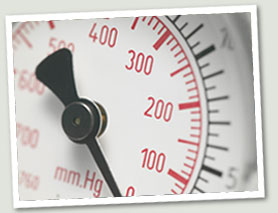|
Physical activity makes your heart stronger over time. A stronger heart can pump more blood with less effort. And the less your heart has to work, the less force or pressure is put on your arteries.
Physical activity can have the same effect on your blood pressure levels as medication. Becoming more active can lower your blood pressure by an average of 10 millimeters of mercury (mm Hg). For some people, that's enough to reduce the need for blood pressure medication. Physical activity also helps you maintain a healthy weight, which is another way to control blood pressure.
 To reap the rewards of being active, try to make it a habit. It takes about one to three months for regular exercise to have a stabilizing effect on blood pressure. The benefits last only as long as you continue to exercise. Remember that aerobic activity will help you control high blood pressure. Simply adding moderate physical activities to your daily routine will help as well. To reap the rewards of being active, try to make it a habit. It takes about one to three months for regular exercise to have a stabilizing effect on blood pressure. The benefits last only as long as you continue to exercise. Remember that aerobic activity will help you control high blood pressure. Simply adding moderate physical activities to your daily routine will help as well.
How Can You Get Moving?
Getting enough activity in your life can be easy. Look for ways to fit regular activity into your day that are fun for you and help you meet the recommended 150 minutes per week of moderate physical activity. If you are just starting, don't try to do it all at once. Getting some kind of activity every day will help you start smart and allow you to improve your health a step at a time.
Safety First
Those with high blood pressure should remember to start slowly when beginning an exercise program. Warm up and cool down properly and gradually build the intensity of your workouts. Make sure you have your doctor's “OK” before doing strength training or other resistance exercises as some of these may actually increase your blood pressure.
Stop exercising and seek immediate medical care if you experience any warning signs during exercise, including:
- Chest pain or tightness
- Dizziness or faintness
- Pain in an arm or your jaw
- Severe shortness of breath
- An irregular heartbeat
- Excessive fatigue
*Adapted from the Mayo Clinic
|